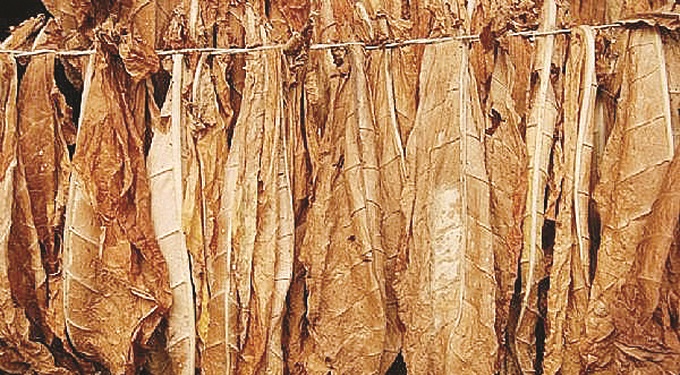Education 5.0 births 16 new industries

Nqobile Tshili, [email protected]
GOVERNMENT has established more than 16 new industries within universities and polytechnics following the reconfiguration of higher and tertiary sectors to produce goods and services while contributing towards the creation of a knowledge-driven economy.
In line with the National Development Strategy (NDS1) and Vision 2030, students at the country’s state universities have also established more than 100 start-ups most of which have already been commercialised.
This is part of the Second Republic’s efforts to ensure that universities and colleges add value to the country’s aggressive development agenda.
Through the Ministry of Higher and Tertiary Education, Innovation, Science and Technology Development, the Government adopted the heritage-based Education 5.0 model, which replaced Education 3.0. Under Education 5.0, institutions of higher and tertiary institutions are expected to champion teaching, research, community services, innovation, and industrialisation, a major shift from Education 3.0, which was only limited to teaching, research, and community services.
The policy shift is meant to address concerns from the industry among other sectors who felt the higher and tertiary sector was producing graduates who did not meet industry expectations.
It also addresses the historic gaps on institutions of higher learning having recently failed to produce business-minded graduates as opposed to a job-seeking mentality.
Since adoption of Education 5.0, local universities and polytechnics have become centres of innovative business ideas as they contribute to addressing national interest issues and effectively responding to societal challenges.
In a detailed report highlighting the ministry’s five-year achievement, Higher and Tertiary Education, Innovation, Science and Technology Development Minister, Professor Amon Murwira, said the 16 industries established so far were now contributing to economic growth.

Minister Professor Amon Murwira
“Through the improved access and utilisation of advanced knowledge and technologies, we have established more than 16 industries for Zimbabwe,” he said.
“At Chinhoyi University of Technology we have established six industries across different sectors of the economy – clothing, sanitisers and detergents, livestock feed, dairy, beef production and artificial insemination,” said Prof Murwira.
“At Midlands State University we have established five industries; pharmaceuticals and food processing industry, chemical processing industry, clothing industry, health industry-MSU National Pathology Research and Diagnostic Centre and the Agro-Industrial Park at Pittscotie in Kwekwe.”
The minister said the University of Zimbabwe in Harare alone has established six industries that are into bakery, edible oil processing, livestock feed processing industry, puff production industry, clothing industry and sanitisers and detergents production.
He said the Great Zimbabwe State University has established a clothing industry, and the Chivi Innovation Centre for Dry-Land Agriculture Agro-Industrial Park.
Prof Murwira said the National University of Science and Technology (Nust) in Bulawayo has invented mobile science laboratories that can come in handy, especially for rural communities.

Gwanda State University Innovation Hub
“At Nust we have established the Nust Genomics Centre, and started a company producing expandable mobile laboratories,” he said.
The Nust Genomics Centre is credited for leading the Covid-19 tests at the beginning of the pandemic. It also houses the DNA laboratory and has been most useful on various national projects including the identification of accident victims burnt beyond recognition in road traffic, as well as those who were swept away and buried in Mozambique following Cyclone Idai disaster.
Accordingly, the expandable mobile laboratories are servicing secondary schools in rural areas and marginalised communities, subsequently increasing access to science, technology, engineering and mathematics disciplines.
“At Harare Institute of Technology, we have started a software development company, which has produced several products like the ‘Tap Card’ system being used at ZUPCO, LADS system for local authorities and a fuel management system, water purification industry, drugs manufacturing, as well as biomedical engineering industries,” said Prof Murwira.

Lupane State University indigenous goat breeding project
He said Mutare Teachers’ College has established a food processing Industry for the beneficiation of indigenous fruits.
Prof Murwira said the ministry has also established Verify Engineering Company, which produces oxygen, nitrogen, and acetylene. Through the National Biotechnology Authority, the ministry has also established a food processing plant, which involves the value-addition of indigenous fruits.
“We have also started a pharmaceutical manufacturing industry through the National Biotechnology Authority, which has produced the COFSOL cough mixture, which is now available on the market. Through Finealt Engineering we have started cooking oil manufacturing industry, soap and detergents making industry, biodiesel processing, and revived the Mt Hampden Biodiesel Industrial Complex,” he said.
Prof Murwira said the Government will continue to utilise various agencies to industrialise the country while collaborating with friendly nations to advance the developmental thrust as championed under Education 5.0.
“In order to strengthen our industrialisation programme, we shall continue to strengthen the capacity of the Tertiary Education Council (TEC) to achieve its key mandate of administering tertiary institutions to deliver innovation and industrialisation for Zimbabwe,” said the minister.
“Furthermore, we shall develop infrastructure for the Centre for Education Innovation Research and Development, Tertiary Education Council, National Academies of Sciences, and the Zimbabwe Council for Higher Education Headquarters.”
The report also shows that the Midlands State University (MSU) is working on a modified coal tar, which will reduce the importation of bitumen for road maintenance.

Midlands State University Innovation Hub
“This new product will result in a 40 percent cost saving on road surfacing costs. We managed to create a partnership between MSU and Verify Engineering for the coal tar project. The modified coal tar surfacing product is an import substitution solution to the economy that currently incurs import bills on bitumen, which is imported from South Africa,” reads the report.
The ministry has said through Verify Engineering, it is now Zimbabwe’s largest industrial gas producer and is able to meet local and regional demand.
The facility serves customers in the healthcare, petro-chemical refining, manufacturing, food, beverage, steel making, mining, aquaculture, animal husbandry, aerospace, chemicals, metal fabrication and water treatment industries.
“VE Gases has entered into the export market with its maiden supply to Mozambique,” reads the document.
Apart from the establishment of new industries, the Midlands State University National Pathology Research and Diagnostic Centre has enabled citizens to access specialist services that were mainly offered outside the country. The Agro Innovation Parks at Lupane State University, Gwanda State University, Marondera University of Agricultural Sciences and Technology (MUAST), Manicaland State University of Applied Sciences (MSUAS), Chinhoyi University of Technology, University of Zimbabwe (UZ) and the Great Zimbabwe University, are some of the top milestones that drive agriculture research and innovations.
“Through the Gwanda State University Agro Innovation Park, we have started contributing to the beef industry as well as other related value chains. Lupane State University Agro-Innovation Park is providing extension services to local farmers in goat production,” said the ministry. “Researches are being done on both indigenous and exotic breeds to improve goat production.” —@nqotshili












Comments